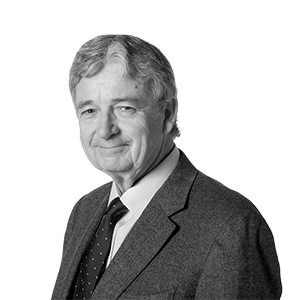

The French Parliament is divided into three similarly sized blocs. The left: the New Popular Front, 180 seats. The right: the National Regrouping, 142; the Republicans, 39; other right-wing parties, 27; total, 208. The center: the Ensemble, 159; others, 30; total, 189. This had never happened in the Fifth Republic, which was built on a two-party political structure. And Macron should be president of the entire state, not the leader of a political movement. This is his mistake, and he doesn't know how to escape it.
The right is dominated by the far right: contempt for immigrants, criticism of the EU, a return to the principles of a France of traditional values, backward-looking, and a drive for chauvinism, believing themselves to be better than everyone else and to be the center of the world, as with Louis XIV and Napoleon, and the center of Europe.
Faced with the difficulty of collaborating with a right dominated by the far right, Macron had only one alternative: a coalition of the center and the less radical groups of the New Popular Front, the Socialists, and deferring to the left as prime minister. But he chose to focus on his party and its loyalists. The consequence: five prime ministers since the last legislative elections—Attal, Barnier, Bayrou, Lecornu, and Lecornu again—with evident parliamentary weakness, which has led to the loss of respective votes of confidence and to average government terms of 130 days. None has the parliamentary strength to undertake the reforms the country needs. Now it seems that Lecornu is withdrawing the pension reform plan, a concession to the left that confirms that the solution lies in an agreement between the left and the center.
The 1958 crisis, which ended the Fourth Republic, had its origins in foreign policy. In 1954, Indochina had been lost; in 1956, Suez had been lost along with the United Kingdom. The revolt in Algeria was serious; a territory considered part of metropolitan France could be lost. This was the reason why the state had to be restructured, gaining military strength and a political presence in the world. De Gaulle had done it in 1940; he was the ideal man to do it again. He came to power after a presidential constitutional reform, with a seven-year mandate for the president and foreign and defense policies directed by him. He had promised to keep Algeria French, but he had to renounce it: the state would break up and there would be a risk of civil war. But if he failed in this, he instead managed to turn France into a first-class nuclear power through the force de frappe, based on aviation, intercontinental missiles, and strategic submarines, all of them self-designed, manufactured, and operated. Only the US, China, and Russia have that power.
The current crisis is a government crisis, internal, linked to the economy and equity. A social cohesion is needed, something that was not present either during the crisis of the Fourth Republic or, ten years later, in May 1968, a fire of shavings, a revolution that ended with legislative elections comfortably won by the center-right.
The economic and social equality data, such as the Gini index, are poor and not improving. GDP is growing by 1.1%. The public deficit is 5.8% of GDP, when the EU authorizes up to 3%. 650,000 citizens will have entered the poverty category in 2023. The richest 20% earn 4.5 times more than the poorest 20%. 70% of French people think they have lost their standard of living with the 2017 reforms, and among the middle class, this opinion reaches 85%. Macron's approval rating is 14%. Out of arrogance, a political class that has not understood the paradigm shift underestimated the warning represented by the reforms. yellow vests.
The French economy is heavily controlled by the public sector. In 2020, public spending reached 60% of GDP. Deep reform is needed to reprivatize the economy. The system of a large public company and an elite ruling class drawn from the grandes écoles, fits poorly with the 21st-century economy, in which mobility between sectors is high and the evolution towards digitalization and services seems to have no limits.
This is the reform that the French state needs, but implementing it is difficult due to the strength of the unions and citizens' awareness of their rights. The current political class lacks strength, leadership, and vision for what the future should be. Citizens may accept sacrifice if they see a better future, but it doesn't seem that anyone today has the credibility necessary to pull them along. De Gaulle finds one every century.
There is a widespread criticism that France's position is partly a bluff: an appearance of strength but actually weak. There is one historical exception, the 1914-1918 war. But if the criticism is true, the current crisis of the French state could be related to that of the Third Republic, which ended in the cataclysmic defeat of 1940. And it could now lead to the loss of its position as a great power in Europe. It is not certain, but that is the direction it is heading.

